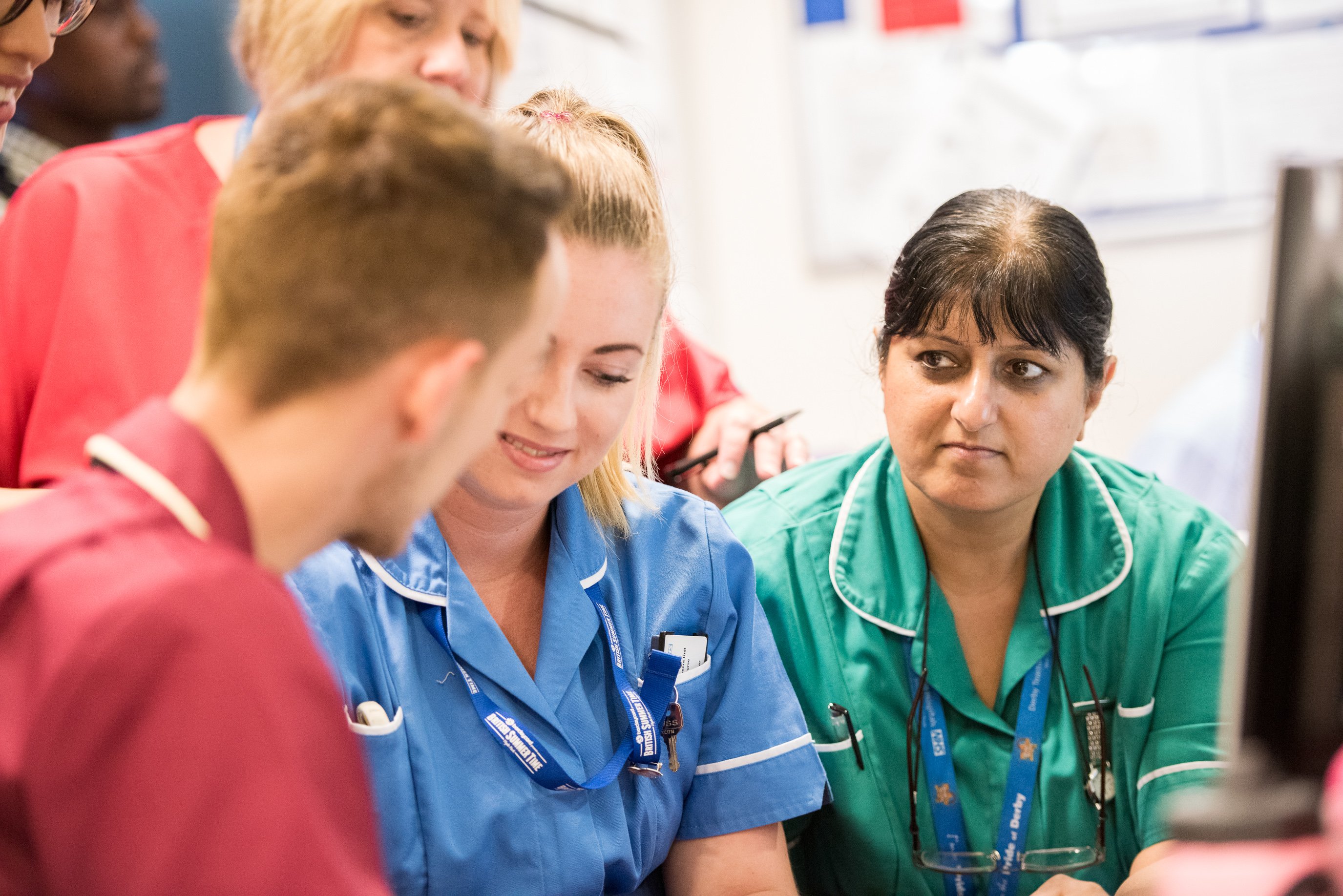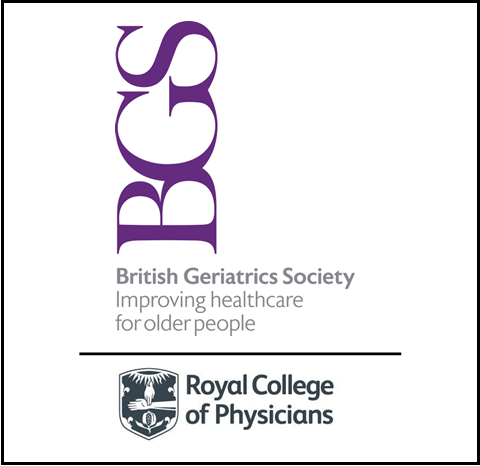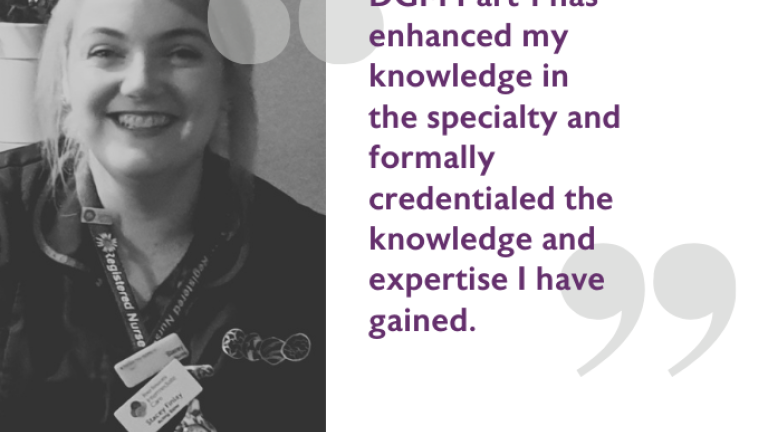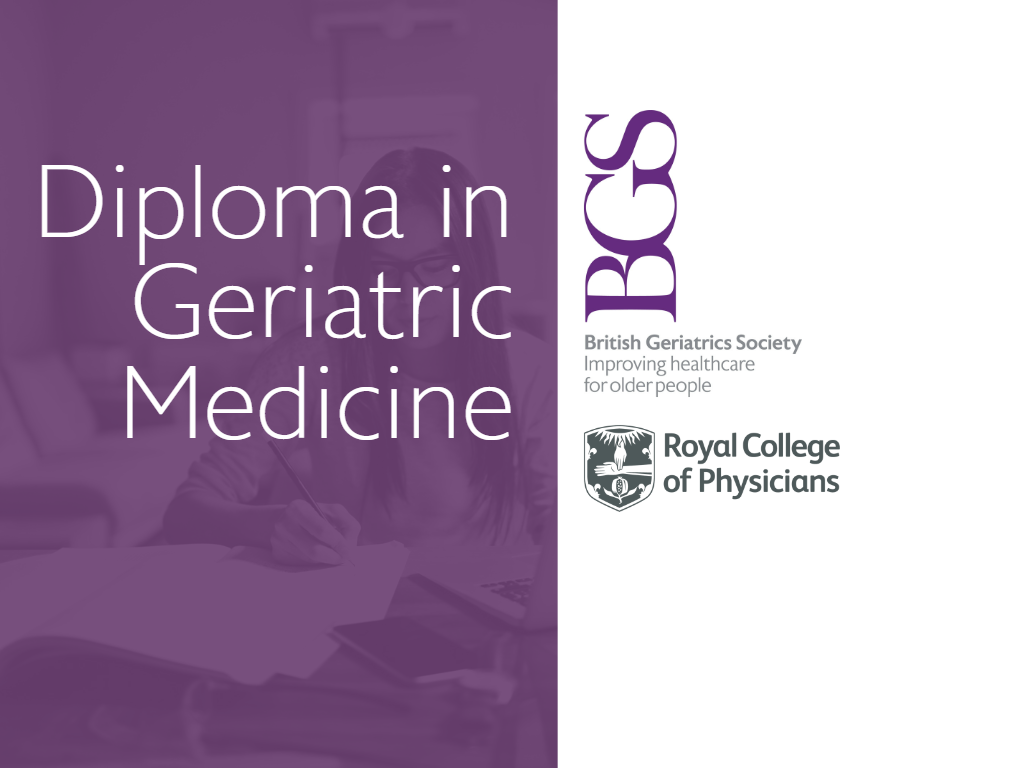The Diploma in Geriatric Medicine (DGM), awarded by the Royal College of Physicians (RCP), is an examination developed collaboratively by the RCP and the British Geriatrics Society. It is designed for individuals who want to demonstrate their knowledge and expertise in the healthcare of older people. GPs and old age psychiatrists, together with some doctors undergoing training in geriatric medicine, have been the main candidates for the DGM over recent years. Since 2021, the exam has been opened up to nurses, allied health professionals, pharmacists and physician associates (on the managed voluntary register).
What is the DGM?
The DGM is a credential that recognises the in-depth critical understanding, clinical knowledge and skills required in the field of geriatric medicine to provide expert care for older people. Candidates sit two examinations: an online knowledge-based assessment, and a clinical exam, currently taken in person at the RCP’s Examination Assessment Centre in Liverpool.
Is the DGM right for me?
If you're a member of the multidisciplinary team involved in the provision of care of older people and want to demonstrate your knowledge, skills and understanding of managing frailty and the chronic conditions experienced by older people, the DGM provides a recognised, well-regarded award. You might be working in community, primary or secondary care, and you will have had at least two years’ post-qualification experience, at least four months of which will be in a setting where you have interacted with a large number of older people. You’ll be familiar with developing care plans for older people. Check out the full candidate eligibility criteria and other information on the RCP website.
I thought the DGM was really really useful. I enjoyed the academic rigour of the multiple choice paper and felt a lot more confident in some areas because of it." - GP, 2021
What preparation do I need to do?
In preparing for the exam, you need to allocate time for self-guided study. Material on the RCP website includes sample questions for the online knowledge-based assessment, and information about the four stations of the clinical exam. Some universities and private providers offer short courses to help you prepare for the DGM. BGS and RCP do not endorse any particular course, but we encourage you to prepare well, and take advantage of our conferences and online resources.
[As a GP], the bits [of the DGM] I use most and advise on most are Frailty, MCA, DOLS, Parkinsons, Dementia, Falls, Nutrition, Equipment, Continence, UTI, Bone protection and Depression in older people." - GP, 2021
DGM was one of the best exams I did post qualification. As a GP it led to becoming a GPwSI in frailty and working in a one-stop elderly clinic at local district general hospital, which was so rewarding." - GP, past candidate
What will I gain from the DGM?
The DGM has been created specifically for healthcare professionals who are not specialist geriatricians to help demonstrate their knowledge and expertise in the care of older people and in particular the management of frailty. It offers external recognition as part of your continuing professional development.
I found the station on comprehensive geriatric assessment to lend itself well to being a GP and practising holistic medicine." - GP, 2019
What is involved?
The DGM is a two-part assessment. Part 1 is a single paper consisting of a 100-question, best of five, online knowledge-based assessment (KBA), sat on a single day.
You must hold a confirmed pass in DGM Part 1 in order to sit the clinical exam. The Part 2 clinical examination will take place in Liverpool, UK and occurs twice per year in Summer and Autumn.
What's new in 2025?
The format of the DGM clinical exam changed in 2024, with the aim of better reflecting how healthcare of older people in primary and secondary care settings is now delivered across the four nations of the United Kingdom.
Part 2 is still a clinical assessment that takes place at the RCP’s bespoke assessment centre in Liverpool at The Spine Building. The clinical assessment comprises four newly named stations, each lasting 15 minutes:
1. Integrated Clinical Assessment 1
2. Comprehensive Geriatric Assessment (CGA)
3. Ethical and legal principles in practice
4. Integrated Clinical Assessment 2
The exam will still draw from areas of the DGM syllabus, which remains unchanged.
DGM Part 2 Clinical Examination (OSCE): Assessment Stations
- Station 1 and Station 4 – Integrated Clinical Assessment (ICA)
Each of the two integrated clinical assessment stations aims to assess the way in which you approach a clinical scenario in the care of older people in a cohesive and inclusive manner, involving history-taking, examination, and communication with a patient.
- Station 2 – Comprehensive Geriatric Assessment (CGA)
A CGA is a valuable tool and a core skill in the assessment of the frail older person. Within this station you will be tested on your ability to conduct and utilise a CGA (initial details of which are provided as part of the candidate instructions), as well as management of a patient with one or more common clinical syndromes.
- Station 3 – Ethical and legal principles in practice
This station assesses your ability to undertake a complex conversation with a patient or a patient’s representative, drawing upon relevant ethical principles and legal frameworks to provide clinical guidance and support in a sensitive and professional manner. Legal frameworks are based upon those utilised across the four nations of the United Kingdom.
To help you understand how the DGM clinical exam is marked, sample marksheets are available to download at the bottom of this page.
When are the exams held?
Details for examinations for the 2025 exams are shown below. For full details of dates and fees, please visit the RCP website.
2025
Part 1 online written exam: Knowledge-Based Assessment (KBA)
- Examination fee: £320
- Application period: Monday 6 January 2025 – Sunday 19 January 2025
- Examination date: Wednesday 26 February 2025 (10:00am start – UK time)
Part 2 clinical exam: Observed Structured Clinical Examination (OSCE)
Set 1
- Examination fee: £611
- Application period: Monday 31 March 2025 – Sunday 13 April 2025
- Examination date(s): 2 June – 3 June 2025 (further dates in the same week may be added dependent on application numbers)*
Part 2 clinical exam: Observed Structured Clinical Examination (OSCE)
Set 2
- Examination fee: £611
- Application period: 1 September 2025 – 14 September 2025
- Examination date(s): 3 November – 4 November 2025 (further dates in the same week may be added dependent on application numbers)*
2026
Part 1 online written exam: Knowledge-Based Assessment (KBA)
- Examination fee: £336
- Application period: Monday 5 January 2026 – Monday 19 January 2026
- Examination date: Wednesday 25 February 2026 (10:00am start – UK time)
- Results release date: Wednesday 25 March 2026 – by 5:00pm to candidate email addresses.
Part 2 clinical exam: Observed Structured Clinical Examination (OSCE)
Set 1
- Examination fee: £642
- Application period: Monday 30 March 2026 - Monday 13 April 2026
- Examination date(s): 1 June - 2 June (additional dates in the same week may be added depending on number of applications)*
- Results release date: Wednesday 1 July 2026 – by 5:00pm to candidate email addresses.
Set 2
- Examination fee: £642
- Application period: Tuesday 1 September 2026 – Monday 14 September 2026
- Examination date(s): 2 November – 3 November (additional dates in the same week may be added depending on number of applications)*
- Results release date: Wednesday 2 December 2026 – by 5:00pm to candidate email addresses.
What else do I need to know?
More information, including links on how to apply, can be found on the RCP website.



